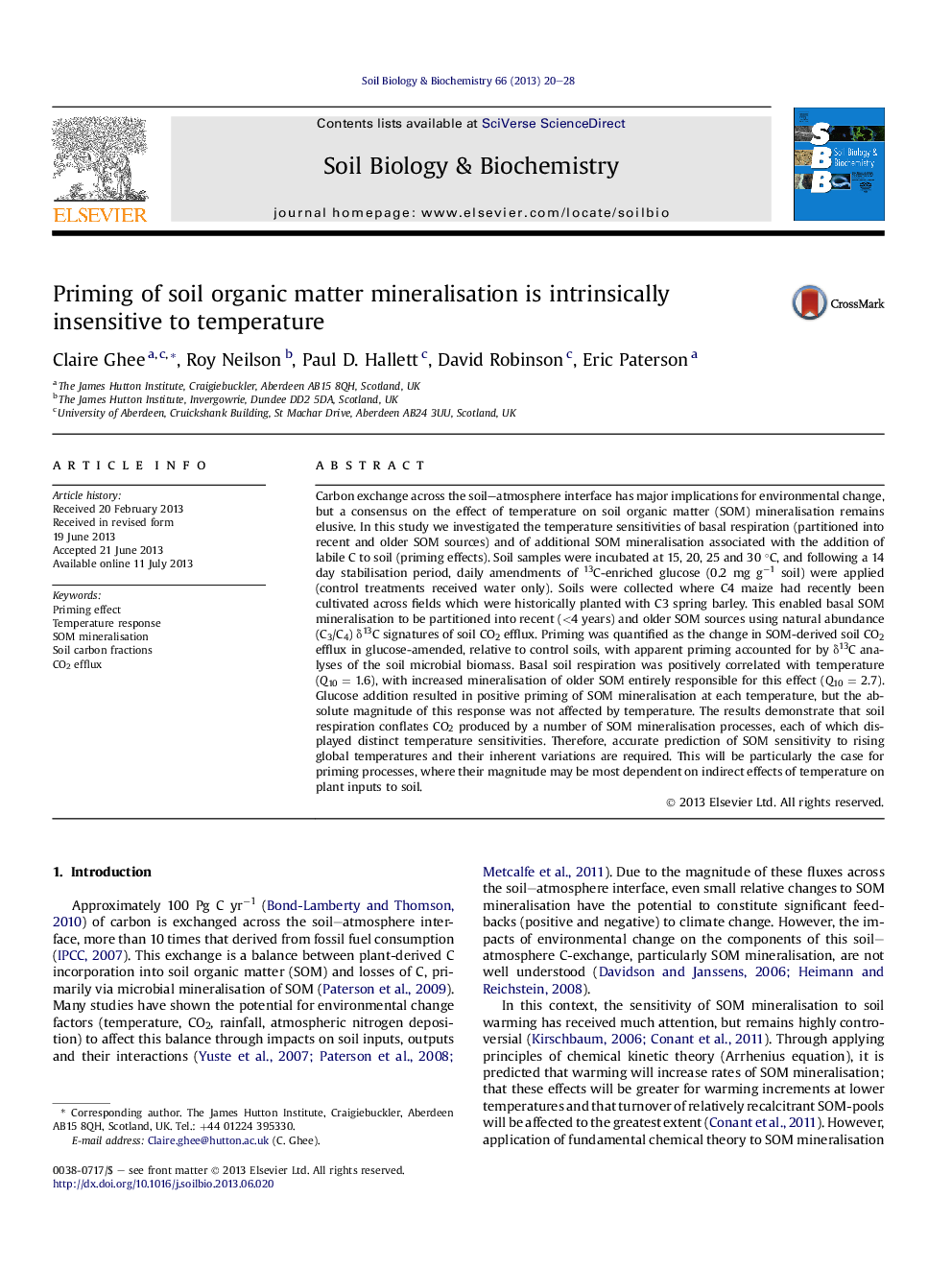| کد مقاله | کد نشریه | سال انتشار | مقاله انگلیسی | نسخه تمام متن |
|---|---|---|---|---|
| 2024677 | 1542618 | 2013 | 9 صفحه PDF | دانلود رایگان |

• Temperature treatments of 15, 20, 25 and 30 °C were applied to soils.
• Additions of 13C enriched glucose induced real, positive priming effects.
• Recalcitrant and labile carbon turnover showed separate temperature responses.
• Priming was not sensitive to temperature changes.
Carbon exchange across the soil–atmosphere interface has major implications for environmental change, but a consensus on the effect of temperature on soil organic matter (SOM) mineralisation remains elusive. In this study we investigated the temperature sensitivities of basal respiration (partitioned into recent and older SOM sources) and of additional SOM mineralisation associated with the addition of labile C to soil (priming effects). Soil samples were incubated at 15, 20, 25 and 30 °C, and following a 14 day stabilisation period, daily amendments of 13C-enriched glucose (0.2 mg g−1 soil) were applied (control treatments received water only). Soils were collected where C4 maize had recently been cultivated across fields which were historically planted with C3 spring barley. This enabled basal SOM mineralisation to be partitioned into recent (<4 years) and older SOM sources using natural abundance (C3/C4) δ13C signatures of soil CO2 efflux. Priming was quantified as the change in SOM-derived soil CO2 efflux in glucose-amended, relative to control soils, with apparent priming accounted for by δ13C analyses of the soil microbial biomass. Basal soil respiration was positively correlated with temperature (Q10 = 1.6), with increased mineralisation of older SOM entirely responsible for this effect (Q10 = 2.7). Glucose addition resulted in positive priming of SOM mineralisation at each temperature, but the absolute magnitude of this response was not affected by temperature. The results demonstrate that soil respiration conflates CO2 produced by a number of SOM mineralisation processes, each of which displayed distinct temperature sensitivities. Therefore, accurate prediction of SOM sensitivity to rising global temperatures and their inherent variations are required. This will be particularly the case for priming processes, where their magnitude may be most dependent on indirect effects of temperature on plant inputs to soil.
Journal: Soil Biology and Biochemistry - Volume 66, November 2013, Pages 20–28